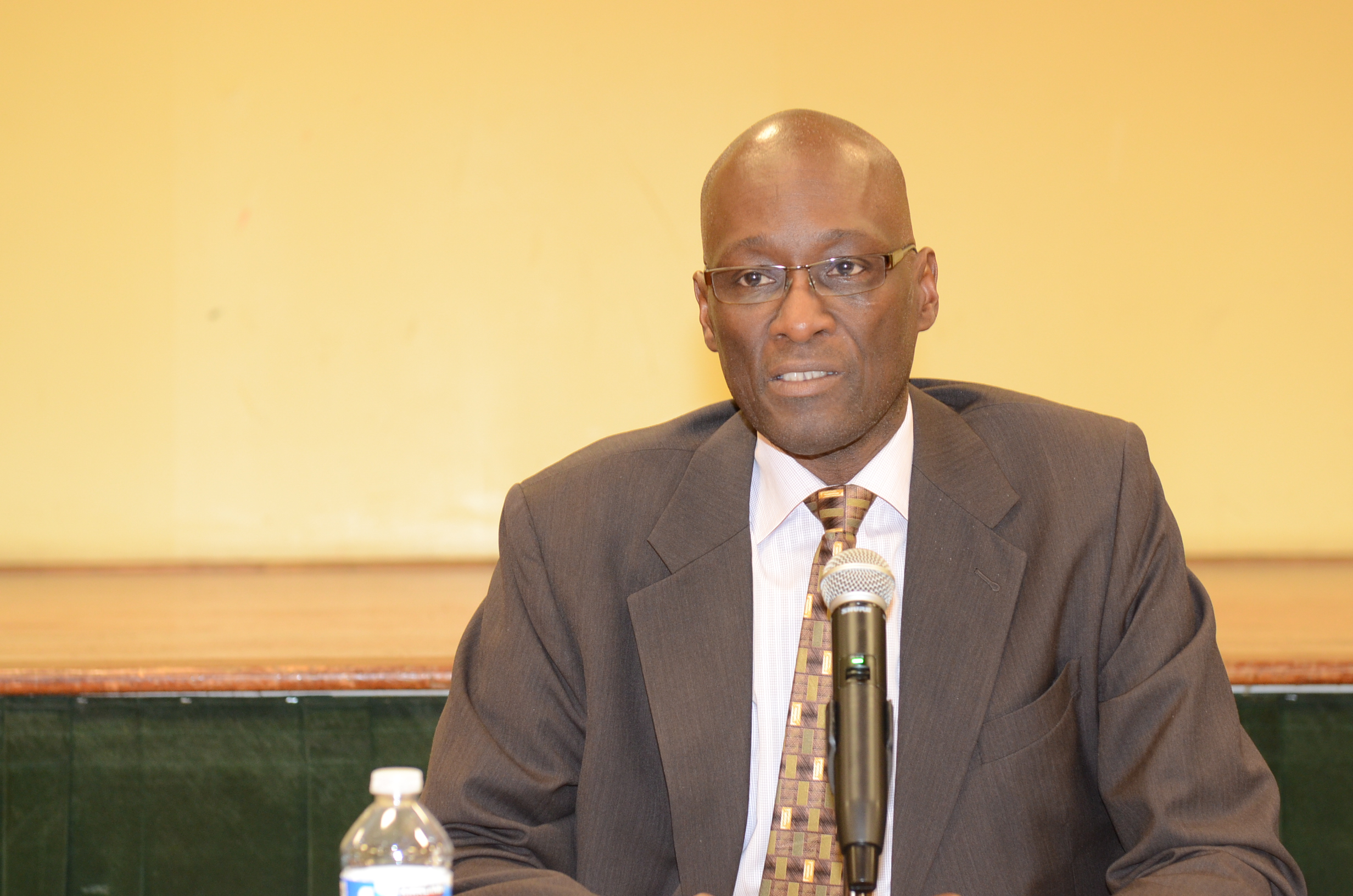Family, friends, colleagues pay tribute to “Rocky” Jones
“The big elephant has fallen in the forest.”
These words at the end of a friend’s condolence message still resonate with Tracey Jones-Grant, the eldest daughter of humanitarian, civil rights activist and institution builder, Burnley “Rocky” Jones, whose body was cremated following a grand farewell last week in Truro, where he was born 71 years ago.
The community elder, who was also an avid outdoorsman, succumbed to a heart attack last month.
In the eulogy, Jones-Grant shared a life lesson that stands out among many she learned from her dad.
“My dad taught his children, grandchildren, nieces, nephews and all of his friends that for every step forward we take in our movement, no matter what it is or where it is, it’s our responsibility to reach behind and bring someone along with us,” she said to applause.
Jones-Grant said her father was one of the greatest champions of the civil rights movement, a passionate prisoners’ rights advocate and one of Canada’s leading experts on environmental racism.
Prior to delivering the eulogy, she read a tribute from family friend, Dr. George Elliott Clarke, who was unable to attend the funeral.
“This is no time to mince words because life is short,” said the City of Toronto poet laureate and E.J. Pratt Professor of Canadian Literature. “It’s also no time to be flowery or ornate, but we can be objective. The man who has left us was the greatest of us, we the African Nova Scotians. He was a spirit of inquisitiveness and generosity. He wanted to understand why Blacks and Natives and the poor in general were oppressed, beaten down, falsely accused, jailed, maltreated and marginalized. He wanted to understand this situation. Even more importantly, he wanted all of us to understand it too so that we might be inspired to get rid of these sorry circumstances.
“That’s where generosity enters in. Rocky learnt history, sociology, economics and law and he taught us to have pride in our history, to be committed to social justice, to fight for equality and opportunity and to demand justice from the legal system.
“He was generous in teaching us what we needed to know to fight for our human rights and defend our civil liberties to triumph. This man also gave us institutions. That’s what great people do. Richard Preston left his African Baptist Church and Rocky left us the Transition Year Program at Dalhousie and its off-shoot at the University of Toronto, the Indigenous Black & Mi’kmaq Program at Dalhousie University, the Nova Scotia Human Rights Commission and he was instrumental in the founding of the Black United Front of Nova Scotia and the Black Cultural Centre. His spirit and examples are also inspirations for many other organizations and seldom did he draw a paycheque.
“No one can fill his shoes, but we must strive to follow in his footsteps.”
Clarke and Dr. Jim Walker were collaborating with Jones on a book that encapsulates his life and the Black Canadian movement in the 1960s.
A history professor and Associate Chair (graduate studies) at the University of Waterloo where he specializes in human rights and race relations history, Dr. Walker first met Jones in 1965 when they were participants in a demonstration outside the United States Consulate on University Ave. to support the Selma March organized by the Friends of the Student Nonviolent Co-ordinating Committee at the University of Toronto.
“I admired his eloquence, his broad vision, his unflinching honesty, his undauntable courage and his passion,” said Walker at the funeral service. “Above all, he was my friend, my critic and my collaborator. If I ever had a soul mate, this was it. His struggle was not only against racism or on behalf of the oppressed. It was an intellectual struggle as well as trying to form an accurate vision of what was going on and to explain it, believing that if you understand how and why, maybe you can intervene and improve it.”
Walker said Jones, who played a key role in bringing the Black Panther Party to Canada and advocated for change on several fronts to benefit disenfranchised people and communities, was a revolutionary.
“He turned things around,” said Walker. “He offered a new and more sophisticated understanding of the meaning of race and the product of racism, a systemic understanding that required systemic solutions. This analysis has become commonplace today. Human rights policies and government equity policies are based on the principle that Rocky was teaching 30 years before these politicians and bureaucrats had picked it up. Nevertheless, systemic problems continue and still does the revolution. Rocky didn’t drop the ball. He passed it on.”
Daughter Casey Jones tearfully recalled the throbbing pain of losing a father while sons Patrice and Shaka recounted the many hunting expeditions they and their father went on.
“He would always tell us that what goes on in the woods stay in the woods,” said Patrice. “We had a great life growing up with him and watching him in action. We were not allowed to watch Tarzan, but when ‘Roots’ was aired, that was like a family event in our home. He was a great, great man and we will miss him.”
One of 10 children, Jones was the grandson of Private Jeremiah Jones, who single-handedly captured a German machine gun nest and its crew during the 1917 battle for Vimy Ridge in France.
Eldest son, Agassou Jones, the women’s basketball coach at St. Francis Xavier University, read an excerpt from his dad’s unfinished memoir that addresses his close association with Jeremiah Jones.
“My sense of identity was always connected to being Jeremiah Jones’ grandson from the marsh in Truro which automatically gave me built-in protection and acceptance wherever I went, especially in my community,” wrote Jones, who was bestowed with the Order of Nova Scotia and an honorary doctorate by the University of Guelph.
Fighting back tears, childhood friend Doug Collins said every Black Canadian should have a picture of Jones in their house.
“He was my hero,” said Collins. “He had more courage that most people will have in their lifetime.”
Graduating from Dalhousie University in 1950 with a law degree, Jones worked closely with the Aboriginal community on land claims, justice and education issues and successfully argued the ground-breaking case R. vs. R.D.S Supreme Court decision on establishing the rules for determining reasonable apprehension of bias in the court system by judges, and establishing limits to the application of social context in judging.
A memorial service will be held in Halifax at a date to be announced.






